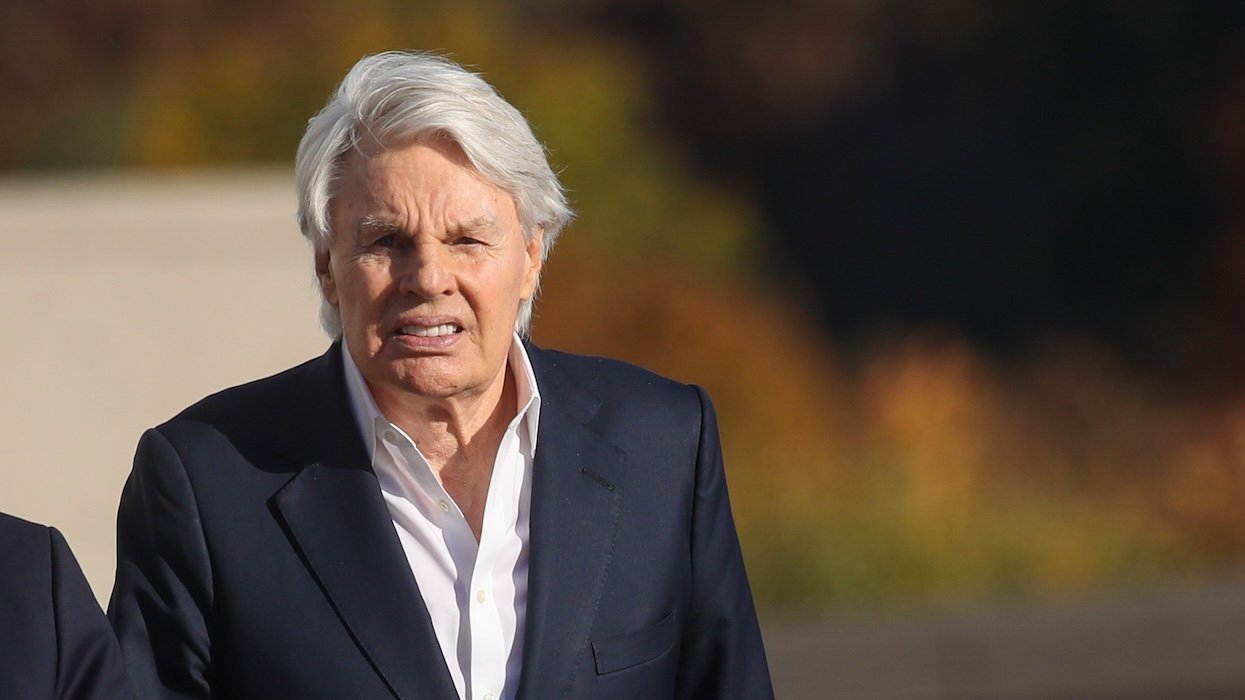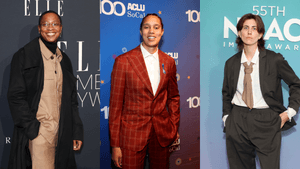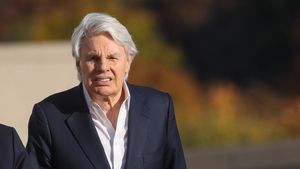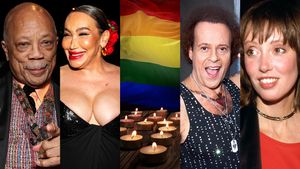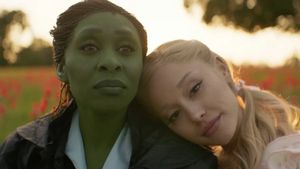They are two of
the biggest churches in the Episcopal Diocese of
Virginia, with roots stretching back to Colonial times. One
even had George Washington as a lay leader. But next
week, the Falls Church and Truro Church will vote
whether to break their centuries-old ties to the
national denomination as its fight over the Bible and
sexuality intensifies.
Parishioners who support a split say they can no
longer abide what they see as moral backsliding by the
Episcopal national leadership, marked most starkly by
the 2003 consecration of the denomination's first openly
gay bishop, V. Gene Robinson of New Hampshire. Their views
are in line with those of Anglican Archbishop
Peter Akinola of Nigeria, among the fiercest critics
of Robinson's election. The archbishop is seeking to
create a U.S. alliance of disaffected parishes as a rival to
the Episcopal Church.
The Episcopal Church is the U.S. branch of the
77 million-member worldwide Anglican Communion,
which is struggling to stay unified despite deep
divisions over whether gays should be ordained.
Most overseas Anglicans believe gay
relationships violate Scripture, but conservatives are
a minority within the 2.2 million-member Episcopal
Church. Still, the protests by traditionalist Episcopalians
have had an impact. Last week, the diocese of San
Joaquin,headquartered in Fresno, Calif., took what its
leaders called a first step toward a formal break with
the national church.
The potential split by the two Virginia churches
comes after three years of effort by local bishop
Peter James Lee to keep conservatives in the fold.
Lee, who voted to confirm Robinson, has earned praise for
his outreach even from those who opposed his vote.
Now the Virginia bishop is warning that any move
by the prominent Virginia parishes to leave could
prompt nasty lawsuits over who owns the historic properties.
Lee said he respects the crisis of conscience
some feel, but he said there is no recognized way for
a church to leave the diocese as a group and take
their property with them. ''We live in a free country, and
individuals are free to walk away,'' Lee said.
Several small Virginia churches have already
broken with the denomination, but none are of the size
or the historic importance of Truro, located in
Fairfax, and the Falls Church. The two congregations'
roots stretch back to before the denomination formed in the
United States.
The city of Falls Church took its name from the
Episcopal parish when the city incorporated in 1948.
On an average Sunday nearly 1,300 people worship in
Truro Church and more than 1,900 attend services at the
Falls Church. Each church claims more than 2,400 members.
The vestries, or boards of directors, of both
parishes voted last month to recommend a split.
Parishioners, starting Sunday, will vote through
December 16 whether they should leave. A supermajority of
70% of those who cast ballots is required to approve a break.
''The vast majority of members are very
concerned about the direction of this church, and it's
very likely that the upcoming vote will reflect
that,'' said the Reverend Rick Wright, associate rector at
the Falls Church.
The churches' leaders believe Virginia law will
be on their side in a property battle. They say a
state statute dating back to the Civil War favors
congregations over denominations in such property disputes,
provided that a majority of all church members vote to leave.
The diocese disputes this. Lee said he has been
advised by canon lawyers that the hierarchical
structure of the Episcopal Church favors the diocese
over the parish and that a civil court would be violating
the denomination's religious freedom if it were to
intervene in favor of the two churches.
''I really want to avoid litigation if at all
possible,'' said Lee, who raised the possibility of
some type of settlement involving property sharing or
a buyout. ''But we do operate under a system of order and
discipline, and I have an obligation to bring to the
attention of those congregations the potential
repercussions of their actions.''
Valerie Munson, a Philadelphia-based lawyer who
specializes in religion and law, said civil courts
consider a variety of competing principles when they
wade into such disputes. ''People on both sides of the issue
would like to state it in black-and-white terms, but it's
not,'' Munson said. ''If courts judge these cases
following neutral principles of law rather than
politics, they are going to be very difficult cases to decide.''
Lee is continuing to press for discussions even
as the churches prepare to vote. ''We are in the hope
business,'' Lee said. ''We never give up hope.''
(Matthew Barakat, AP)































